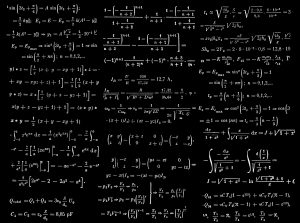The Role of Time-Pressure Practice in Competition Success

Introduction
Competition exams can be a stressful experience for both children and parents. The pressure to perform well can often lead to anxiety and hinder the ability to showcase true potential. As parents, we want to provide our children with the necessary tools and techniques to thrive in these high-stakes environments. One such tool is time-pressure practice.
In this blog, we will explore the significant role that time-pressure practice plays in competition success. We will delve into the benefits of this practice, how it enhances coping skills, improves performance consistency, boosts motivation and effort, develops positive pressure relationships, and increases self-awareness and confidence. We will also touch upon the value that abacus learning brings to mathematical excellence. So let’s dive in and unlock the secrets to competition success!
The Benefits of Time-Pressure Practice
Time-pressure practice, also known as pressure training, offers numerous benefits that directly contribute to competition success. Let’s explore some of these key advantages:
Improved Coping Skills: Practicing under time constraints helps children develop strategies to manage anxiety and nerves. By repeatedly facing time-pressured scenarios, they learn to handle stress effectively and remain calm during competition exams.
Enhanced Performance Consistency: Regular exposure to pressured situations in training allows children to become accustomed to the sensations and demands of real competitions. This reduces the likelihood of performance drops or “choking” when stakes are high.
Boosted Motivation and Effort: The added challenge of time-pressure practice increases motivation and effort during training. By simulating the competitive environment, children perceive each task as more important, leading to increased dedication and focus.
Development of Positive Pressure Relationships: Pressure training helps children reinterpret nerves and stress as natural and potentially beneficial responses, rather than threats. This shift in mindset can be crucial for peak performance during competition exams.
Increased Self-Awareness and Confidence: Through time-pressure practice, children gain insight into their stress responses and build confidence in their ability to cope. This self-awareness and belief in their skills are essential for success in actual competitions.
Effective Implementation of Time-Pressure Practice
To reap the full benefits of time-pressure practice, it is important to implement it effectively. Here are some key strategies for incorporating this practice into your child’s routine:
Simulate Competition Conditions: Create practice scenarios that closely mimic the timing, rules, and stakes of real competitions. This will maximize the transfer of skills from training to actual exams.
Gradual Intensity: Start with manageable levels of pressure and gradually increase the intensity over time. This approach ensures that children are not overwhelmed and allows for steady skill development.
Consistency and Repetition: Regular, repeated exposure to time-pressure is necessary for lasting improvement in coping and performance abilities. A single session is not sufficient to develop the necessary skills.
Integrate Mental Skills: Combine time-pressure practice with techniques like visualization and positive self-talk. These mental skills reinforce effective coping strategies and further enhance performance under pressure.
Abacus Learning for Mathematical Excellence
In addition to time-pressure practice, abacus learning has proven to be a valuable tool for achieving mathematical excellence in children. Expanding on mental math skills, abacus learning offers a structured approach to calculations and develops a strong foundation for advanced mathematical concepts. Here are some key benefits of abacus learning:
Develops Strong Mental Math Abilities: Abacus learning enhances children’s ability to perform complex calculations quickly in their heads. It strengthens their number sense, arithmetic skills, and mental agility.
Improves Focus and Concentration: The abacus requires focused attention and concentration to manipulate the beads and perform calculations. Regular practice sharpens these skills, which are crucial for success in competition exams.
Enhances Overall Intelligence and Learning Ability: Abacus learning stimulates both sides of the brain, promoting whole-brain development. This leads to enhanced cognitive abilities, improved memory, and increased learning capacity.
Boosts Confidence and Personality Development: As children master abacus techniques, their self-confidence soars. They develop a positive attitude towards math, which translates into improved overall academic performance and personality development.
Provides a Competitive Edge: Abacus learning equips children with unique mental math skills that give them a competitive advantage in exams and future competitive tests. They can solve problems quickly and accurately, surpassing their peers.
Table: Impact of Time-Pressure Practice on Competition Success
|
Benefit |
How It Supports Competition Success |
|---|---|
|
Improved coping with stress |
Reduces anxiety and prevents performance drops under pressure |
|
Enhanced performance consistency |
Builds familiarity with competition-like conditions |
|
Increased motivation and effort |
Raises training intensity and focus |
|
Positive relationship with pressure |
Reframes nerves as helpful, not harmful |
|
Greater self-awareness and confidence |
Strengthens belief in ability to perform under stress |
Conclusion: Summing Up
In conclusion, time-pressure practice plays a vital role in achieving competition success. It improves coping skills, enhances performance consistency, boosts motivation and effort, develops positive pressure relationships, and increases self-awareness and confidence. When combined with abacus learning, it creates a powerful combination for unlocking mathematical excellence in children.
SIP Abacus offers world-class skill development programs that incorporate abacus learning and time-pressure practice. These programs are designed to unlock the mental potential of children through fun learning methodologies. By developing strong mental math abilities, improving focus and concentration, enhancing overall intelligence, boosting confidence, and providing a competitive edge, the SIP ABACUS program nurtures children’s academic and overall growth.
So, if you want to empower your child with the necessary tools for competition success and mathematical excellence, consider enrolling them in a SIP Abacus program. Give them the opportunity to excel and thrive in high-stakes environments. Remember, with the right training and support, your child can achieve great heights of success!



